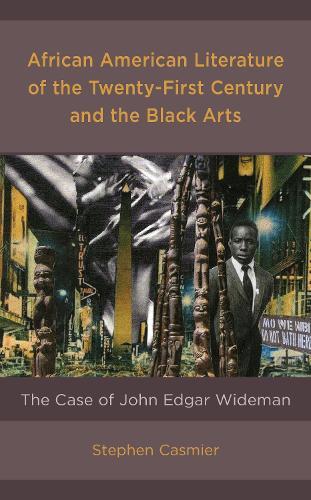Full Product Details
Author: Stephen Casmier
Publisher: Bloomsbury Publishing Plc
Imprint: Lexington Books
Dimensions:
Width: 16.10cm
, Height: 2.40cm
, Length: 22.80cm
Weight: 0.531kg
ISBN: 9781793614605
ISBN 10: 1793614601
Pages: 230
Publication Date: 24 June 2021
Audience:
Professional and scholarly
,
Professional & Vocational
Format: Hardback
Publisher's Status: Active
Availability: Manufactured on demand

We will order this item for you from a manufactured on demand supplier.
Reviews
In the preface to this work Casmier provides a rich review of the scholarly/critical works about John Edgar Wideman (b. 1941). He asserts that critics find a paradox in the scholarship-- the aporia induced by a writer who imbeds autobiographical details in his works but also broadcasts 'telling stories' and 'lies' in deference to the Igbo proverb that he endlessly references (No story is not true, from Chinua Achebe's Things Fall Part). Ever present in Wideman's works is the figure of his brother, a convicted murderer, who not only complicates the works but also helps locate them in the Black Arts tradition. Casmier explores six of Wideman's novels, calling them the functional works of the discredited Black Arts Movement--works that demand a critical approach that responds to them as things in and of themselves. Like most critics, Casmier is interested in improving the accessibility of Wideman's works and increasing his audience. The book is as much about Wideman's craft as it is about the tradition out of which Wideman writes and the urgent messages he deftly embeds in his works. This book can be viewed as an attempt to rescue Wideman from European discourse. A 2019 interview with Wideman is a brilliant supplement to the work. Highly recommended. Graduate students, researchers, faculty.-- Choice
"In the preface to this work Casmier provides a rich review of the scholarly/critical works about John Edgar Wideman (b. 1941). He asserts that critics find a paradox in the scholarship--""the aporia induced by a writer who imbeds autobiographical details in his works but also broadcasts 'telling stories' and 'lies' in deference to the Igbo proverb that he endlessly references"" (""No story is not true,"" from Chinua Achebe's Things Fall Part). Ever present in Wideman's works is the figure of his brother, a convicted murderer, who not only complicates the works but also helps locate them in the Black Arts tradition. Casmier explores six of Wideman's novels, calling them the functional works of the discredited Black Arts Movement--works that demand a critical approach that responds to them as things in and of themselves. Like most critics, Casmier is interested in improving the accessibility of Wideman's works and increasing his audience. The book is as much about Wideman's craft as it is about the tradition out of which Wideman writes and the urgent messages he deftly embeds in his works. This book can be viewed as an attempt to rescue Wideman from European discourse. A 2019 interview with Wideman is a brilliant supplement to the work. Highly recommended. Graduate students, researchers, faculty."
Author Information
Stephen Casmier is associate professor in the department of English at Saint Louis University.




